Refugee crisis: While the EU gropes for a coherent response, Britain turns its back
The tide of refugees is not about to turn; but political attitudes to them should
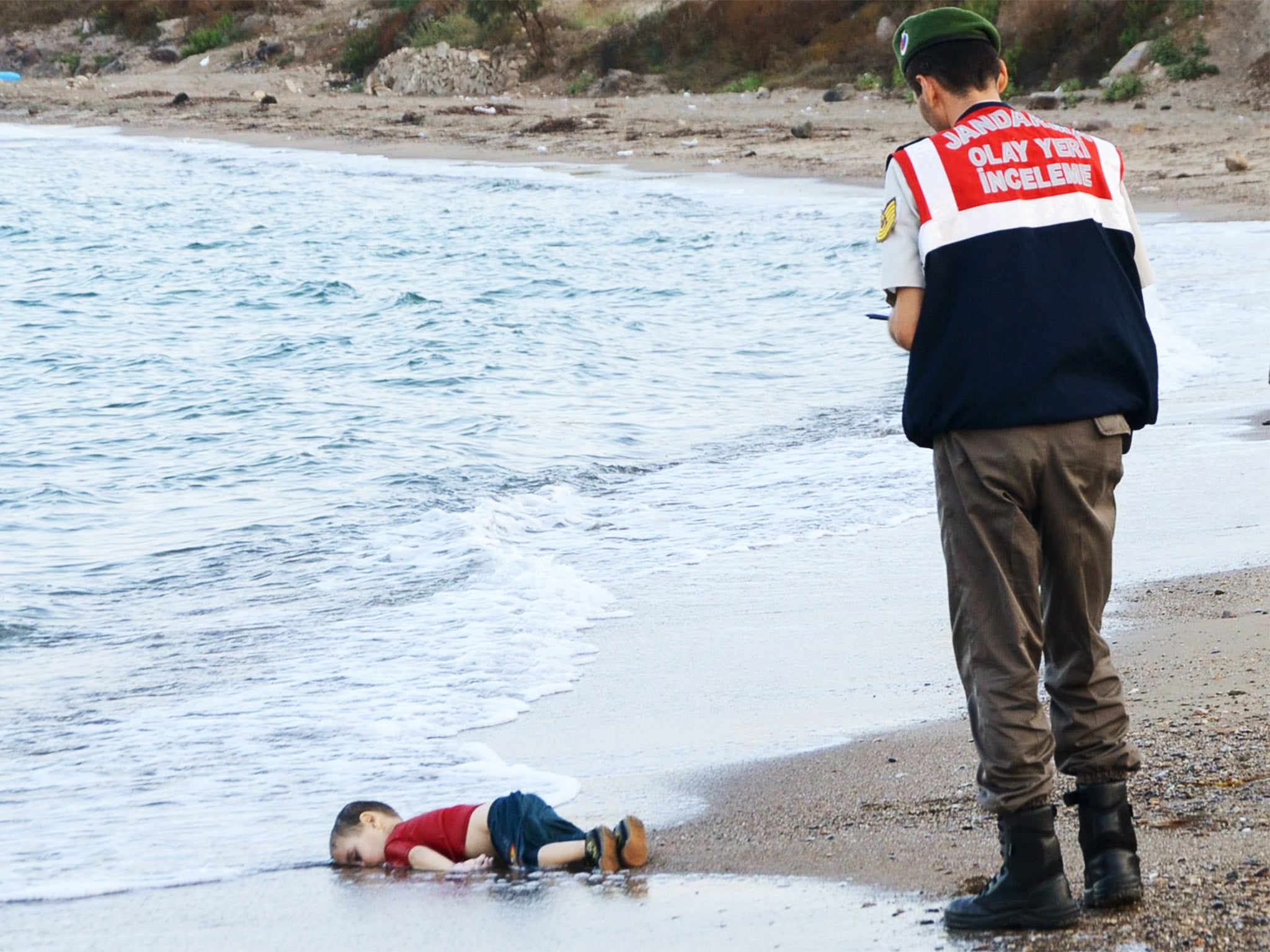
He was someone’s precious child. The little boy’s family was fleeing the savagery of the conflict in Syria and seeking a new life in the European Union. Their small boat capsized as they made the two-mile sea crossing from Turkey to the Greek island of Kos.
Normally, The Independent would not publish a photograph of a drowned child. We do so because we believe that the image could – or should – mark a turning point in the immense humanitarian crisis which has confronted Europe and Britain this summer.
The tide of refugees is not about to turn; but political attitudes to them should. And public attitudes may already be turning. Many Britons, it appears, are growing ashamed by the failure of David Cameron to grasp the magnitude of the crisis. Prominent politicians have begun to express concern. The Government has been confronted with a stark moral test and is failing it.
The Independent has taken the decision to publish the above image because, among the often glib words about the "ongoing migrant crisis", it is all too easy to forget the reality of the desperate situation facing many refugees.
The EU response has been muddled and inadequate; Britain’s response has been shameful. The nation’s attention has been focused on the asylum-seekers in Calais. Hardly any of them are Syrians. Some may be genuine asylum-seekers; others are probably not. The bulk of the people now arriving into eastern Europe are refugees from Afghanistan and a cruel, civil war in Syria for which the West, and Britain, shares some of the blame. Most of the refugees reaching Italy are refugees from Syria or other conflicts in Somalia, Eritrea and south Sudan.
Next week, EU governments will consider a new European Commission plan to divide the scores of thousands of refugees already in Italy and Greece between the 28 member states. Britain insists that it is “exempt” from any such plan because we do not belong to the Schengen “open borders” zone in Continental Europe.
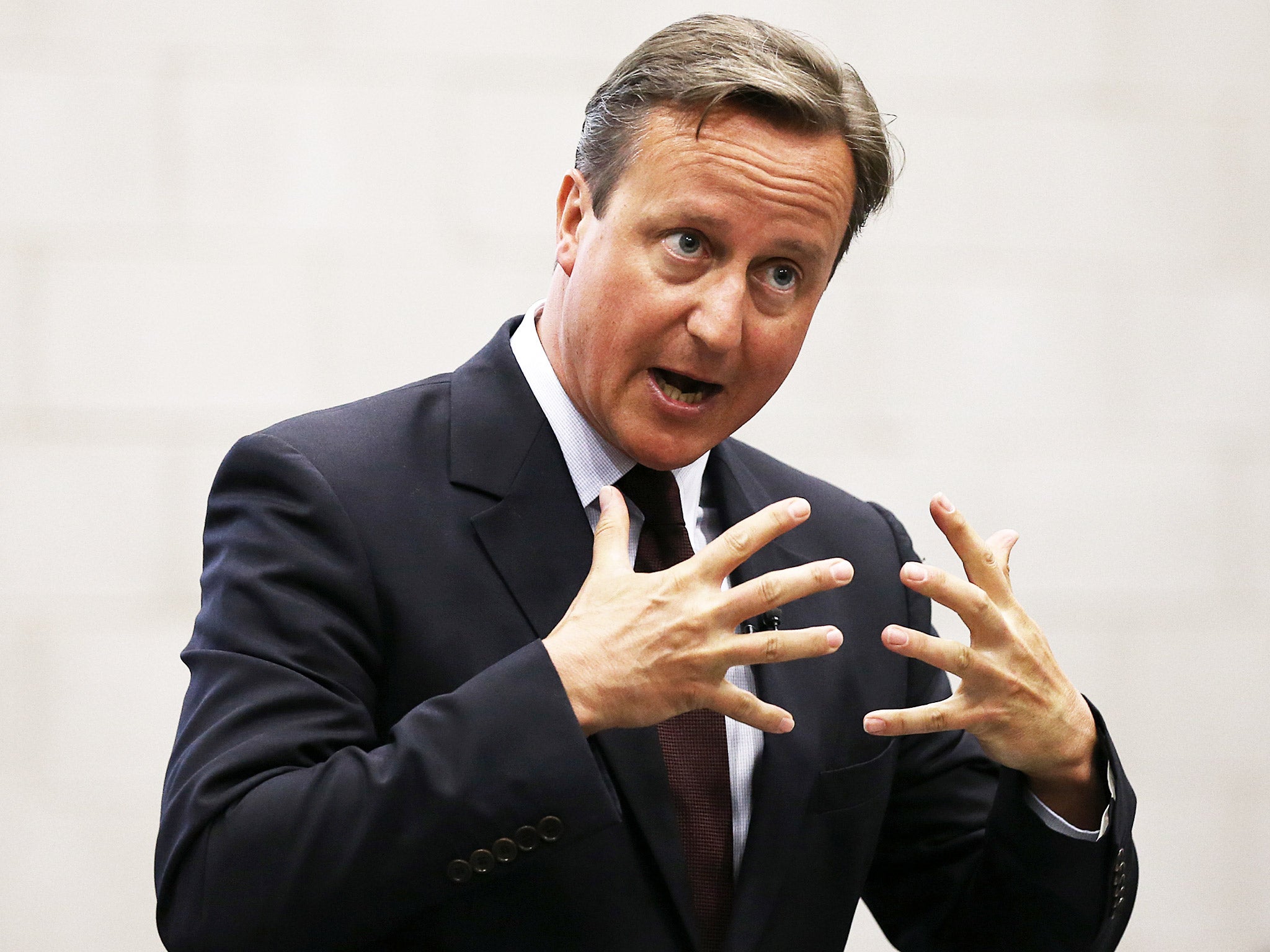
Mr Cameron has rejected a call from the shadow Home Secretary, Yvette Cooper for Britain to take 10,000 people. He said: “I don’t think there is an answer that can be achieved simply by taking more and more refugees.”
Refugee charities said that the public mood was shifting. “The British people know these families have not travelled across the sea on a whim; they understand they are fleeing for the lives,” said Maurice Wren, chief executive of the Refugee Council.
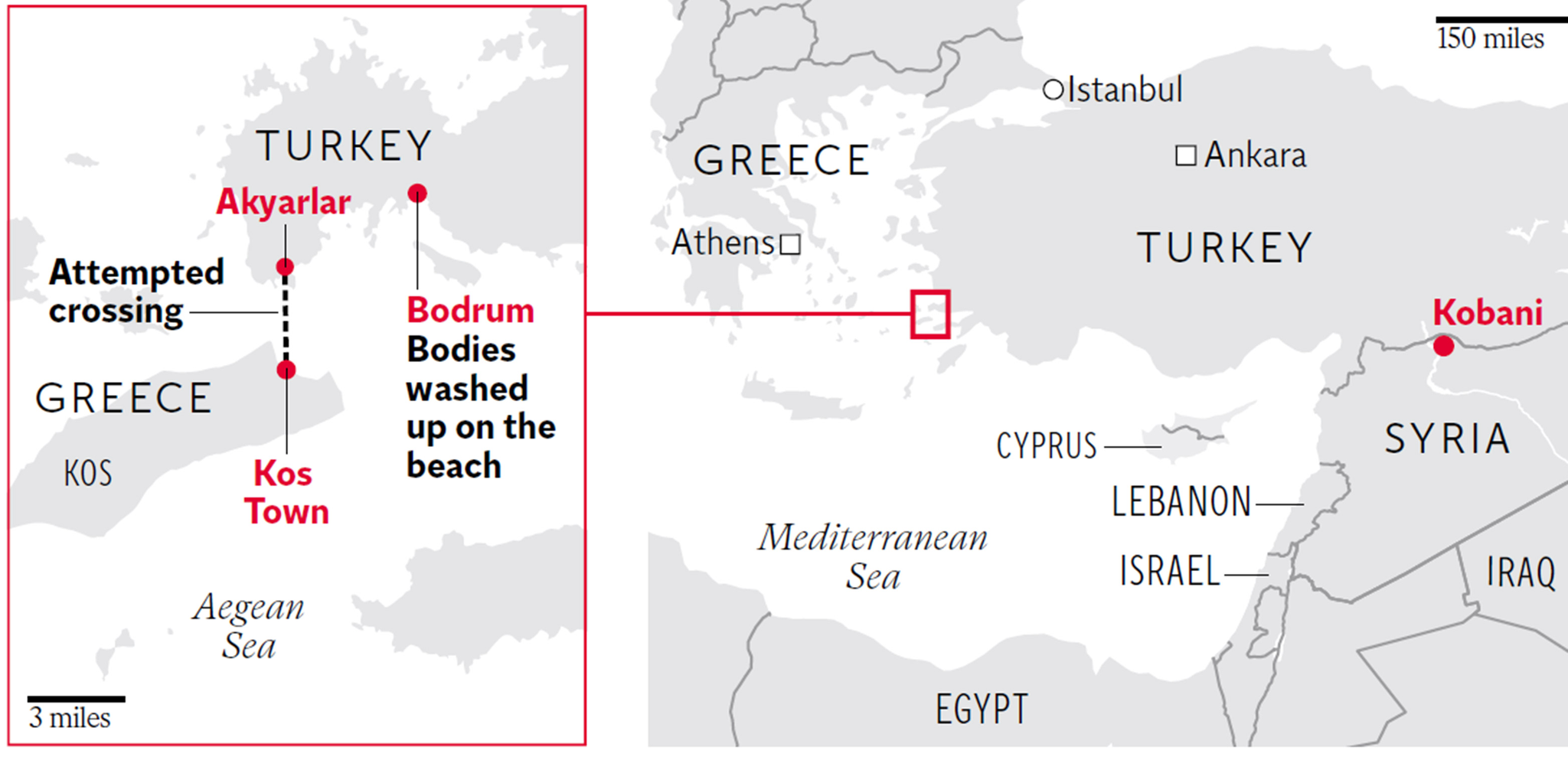
The German Chancellor has warned, indirectly, that Britain’s attitude will influence her attitude to the EU reforms Mr Cameron is seeking before his In/Out referendum next year. The Prime Minister fears that he could lose the referendum if he is “forced” to accept asylum seekers by the EU. In other words, he finds himself in an uncomfortable double-bind of his own making.
The Bild Zeitung – Germany’s answer to The Sun and Daily Mail – turned its guns on Britain. The UK, a country that habitually gives moral and political lessons to others, has become, “Europe’s biggest refugee shirker”, Bild Zeitung said. Relations between the other EU countries are scarcely better. Hungary feels aggrieved because it has been attacked for building a razor fence to keep refugees out of the EU – and also attacked for failing to keep them in.
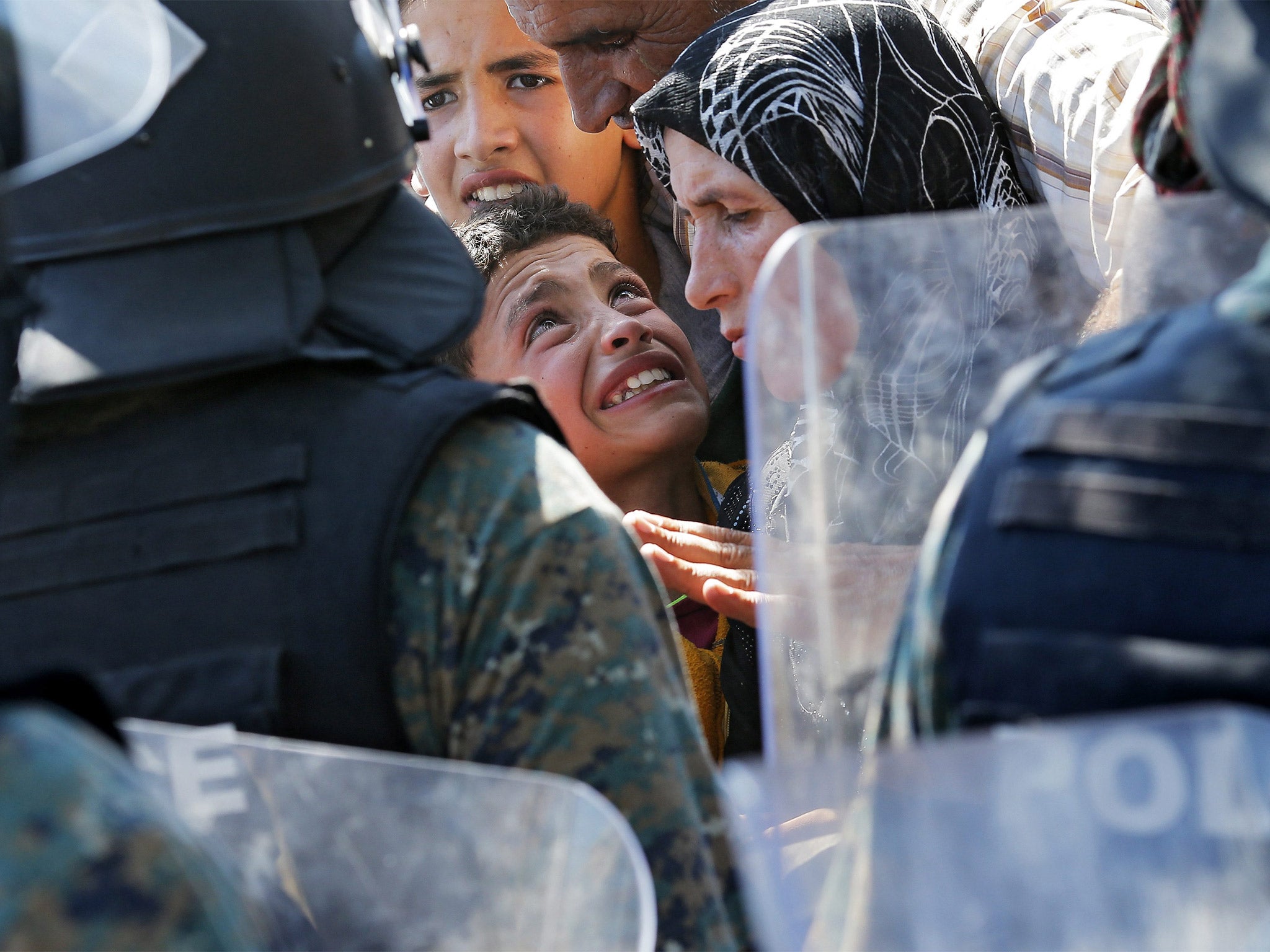
Budapest has protested that Greece and Bulgaria were breaking EU asylum rules by allowing the refugees to depart unhindered towards the richer north and west.
Hungarian police cleared refugees from the main Budapest railway station on Tuesday night. The streets around the railway station turned into a refugee camp.
Despite its generosity, Germany says that it cannot cope with the sheer quantity of refugees now pouring into it territory. All in all, the crisis has brought two cherished EU policies to the point of collapse. The first is that 1990 “Dublin protocol” which states that asylum seekers must be processed in the first EU country that they reach – and sent back there if they cross a European border. The second is the Schengen agreement which has removed all systematic frontier controls within the Continental EU. Ms Merkel warned this week that the many advantages of Schengen are in danger unless all EU countries take their share of the refugee burden.
Ukip, the Conservative Eurosceptic right and the far right Front National in France say that Schengen is somehow the “cause” of the crisis. This is difficult to swallow. Most of the scores of thousands of refugees pouring into Europe are fleeing war and oppression. They are not attracted by a “border-free” Europe. They are attracted by a peaceful and prosperous Europe.
They are prepared to cross closed and defended borders as well as open ones. They are prepared to risk their lives – and those of their children – on dangerous sea crossings.
The EU is groping for a coherent response to Europe’s biggest population movement since 1945. At least it is groping. Britain still insists that the crisis is none of our business. We publish this dreadful image as a reminder of the human cost of the calamity. To pretend that the crisis is not our problem may be a bold statement of a certain type of Britishness. It is also a betrayal of our humanity.

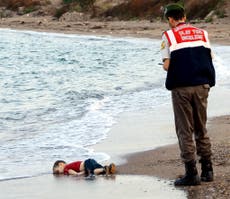
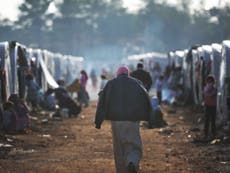
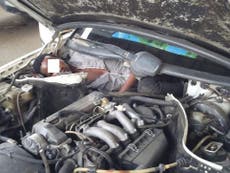

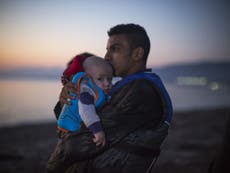
Join our commenting forum
Join thought-provoking conversations, follow other Independent readers and see their replies